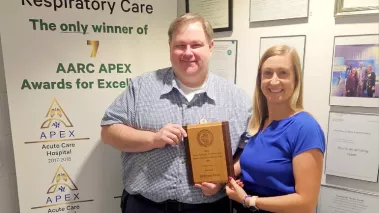As an adult taking classes, you may have some advantages over your younger peers: clearer goals for school and your career, and life experiences to help guide the way.
But it’s also likely you have more responsibilities and life zigzags than you had when you were younger. Maybe you’re navigating a career change or have to juggle textbook time with home and work life.
In the 2018-19 academic year, 7.6 million of the projected 19.9 million students attending U.S. colleges and universities are expected to be 25 years old or older, according to the National Center for Education Statistics. If you’re trying to navigate school as an adult, here are some tips to help manage your valuable time.
Don’t procrastinate
Sure, this is much easier said than done. But when you get into the habit of taking on tasks even though you don’t feel like it, the huge feeling of relief when you’re done will build your motivation to beat procrastination in the future.
Waiting until you’re motivated to start a project can leave you lagging in a fast-paced, rigorous educational environment. That could lead to feeling overwhelmed and intimidated by the learning material you now need to catch up on.
Beat procrastination with the following tips:
- Set concrete goals. Instead of a vague plan (“I’m going to study for my test today.”), be more specific: “I’m going to study chapters 1-3 and review practice questions.”
- Map out your day. Take 15 minutes at the beginning of the day to plan what you want to accomplish, whether you use an online calendar or pen and paper. Make sure your goals are realistic. Time planning takes some time, but it also saves time.
Rank tasks by priority
Ranking your tasks in order of importance can help give you a better idea of which ones to tackle first. Clustering tasks into groups (high priority, mid-level priority and low priority) will help give you a clearer view of the big picture.
For example, you may need to finish your financial aid application, change your address at the registrar’s office, review an approaching exam with a professor and meet classmates for a study session. Taking into account all factors, such as deadlines and relevance to school success, you may decide to rank them as follows:
- High priority: Meet with professor and attend study session (exam is tomorrow)
- Mid-level priority: Complete financial aid application (deadline is next week)
- Low priority: Change address (deadline is next month)
Otherwise, tasks can get jumbled, which makes them feel daunting. Completing the most important and time-sensitive items first will give you a sense of accomplishment and make everything else seem easier by comparison.
Treat yourself
Reward yourself when you complete tasks you dread. You’ll condition yourself to be more excited to tackle the next tough task on your list.
Your reward doesn’t have to be a big-ticket item, such as an extravagant vacation or a new car, though it certainly can be. This exercise isn’t an excuse to spend. Treats that cost little or no money are often just as powerful, whether it’s a high-quality cup of coffee, exercising or catching up with a friend.
You work hard, so you deserve to stop and smell the roses. Plus, the break you take will leave you feeling recharged to take on what’s next.
Don’t lose sight of the big picture
You have a long to-do list. But why are you doing all of those to-dos? Because you have big plans for now and the future. It’s sometimes tough to see the forest for the trees, though.
If you link unpleasant tasks to a larger goal, you’ll be more motivated to complete chores you may have otherwise put off.
Here are two examples:
- You’re a medical student who has to write a personal statement for residency applications that are almost due. The task may not be that appealing on its own, but it won’t seem as tough if you remind yourself that your residency is going to decide how your career as a physician plays out. Where you study and what you specialize in are major life decisions. That’s plenty to kick your motivation into gear.
- Washing and ironing clothes are right up there with watching paint dry on the excitement scale. It takes time from more pleasant activities, and your clothes are just going to end up dirty and wrinkled again anyway. But what if you remind yourself that keeping a professional appearance will lead to being taken more seriously by people who can have an impact on your school success and career opportunities? The time you take to search for the sock your dryer ate will seem like a more worthwhile quest.
Minimize distractions from your phone
With your busy schedule, you’ll benefit from eliminating things that interfere with reaching your goals. That starts with your cell phone.
Turn your phone off, switch it to silent or Do Not Disturb mode when you’re in class, studying, with a patient in the clinic or meeting with a professor.
Modern technology is amazing, but taking a break to check Facebook while you’re trying to write a term paper will divide your attention and raise your chances of phoning it in. So get the phone out of the picture.
There are times, however, when you may need to be keep your phone close: waiting for an update about a sick family member or a scheduled call from someone about a career opportunity. Even then, you can limit the phone’s ability to pull attention away from classwork by adjusting its settings and turning off notifications from apps that aren’t critical.
Avoid the perfectionism trap
Lastly, aspire to be excellent rather than perfect. True perfection is impossible and may lead you down a rabbit hole that will whittle away more time than it’s worth.
Excellence, meanwhile, is attainable. A grade of 93 on an exam is an excellent performance. A perfect grade would certainly be nice, but the time it would take to ensure a 100 may unnecessarily take you away from using your energy on other tasks that need your attention.
And as an adult learner, you certainly have no shortage of other responsibilities.
Hilarie C. Terebessy, PhD, Director, Rush University Counseling Center, contributed to this piece







